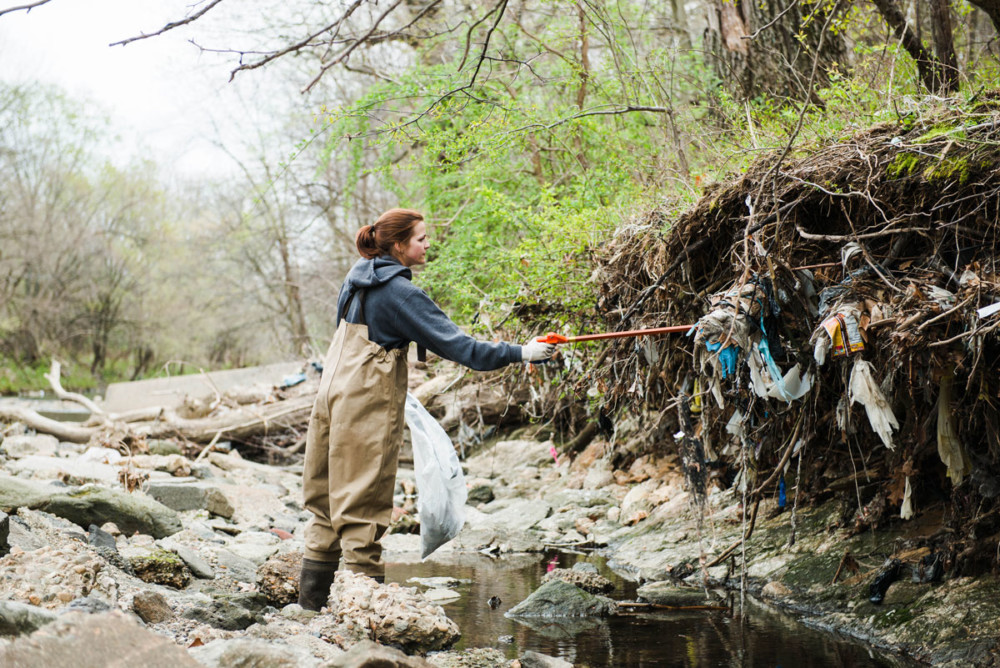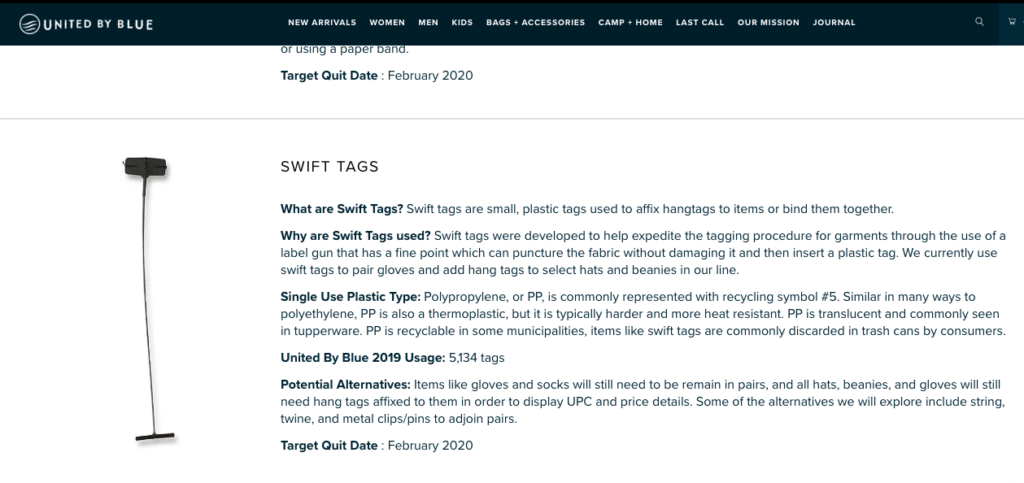
United by Blue Quits Single-Use Plastic
The company announced a pledge to remove eight prevalent plastics within one year
Plastics in our waterways and oceans is a larger problem, with a significant increase since the 1990s. Recently, Canada and Oregon have announced intentions to eliminate single-use plastic with legislation.
Local outdoor brand and apparel company United by Blue made a big announcement about this plastic problem on World Ocean’s Day, observed on June 8th.
By June 8, 2020, United by Blue has pledged to remove 8 types of plastics from its manufacturing including plastic poly bags, plastic swift tags, plastic bubble wrap sleeves, and plastic trim bags.
In a press release, Mike Cangi, United By Blue’s Co-Founder and Brand Director, explained the rationale:
“Through 10 years of waterway cleanups, we’ve become intimately aware of the damage caused by single-use plastics—we’ve picked them up by the thousands from garbage-strewn beaches and riverbanks. We’ve worked tirelessly to make products that are as kind to the earth as possible, always opting for natural, organic, and recycled fabrics. We’ve opened LEED Platinum retail stores built with reclaimed materials. Yet, despite our efforts to build the most responsible brand of our generation, our operations depend on single-use plastic and we know we can do better. We decided to make a pledge for change and we hope others will join us.”
Mike Cangi
What plastics are United by Blue eliminating?

United by Blue identified 8 types of plastics in their supply chains. Here’s what they are:
- Poly Bags – tiny bags that protect an individual product like bandanas, gloves, socks, etc.
- Swift Tags – (those annoying tiny plastic tags that come on your clothes in store)
- Bubble Wrap Sleeves
- Trim bags – tiny plastic bags on labels
- Fabric Roll Packaging
- Binder sleeves & office plastic
- Plastic shrink wrap
- Plastic tape

See the full list and explanations of what they are, how many items used on United by Blue’s website.
Why does removing plastic take a year?

According to United by Blue, they’ve created an eight-person interdepartmental #QuitSingleUse task force team to stay focused on their commitment, assess the current production and supply chains. In order to remove these products from the waste stream, they have to work with logistics partners, warehouses, and wholesale customers to tackle challenges with this change. By the fall, United by Blue will identify challenges, finalize the plan with stakeholders and have a testing phase to see what breaks.
Accountability: After the Spring 2020 product line is assessed, United by Blue will release a report about successes and ongoing challenges to be released with the industry, partners, and customers.
Photos courtesy of United by Blue





